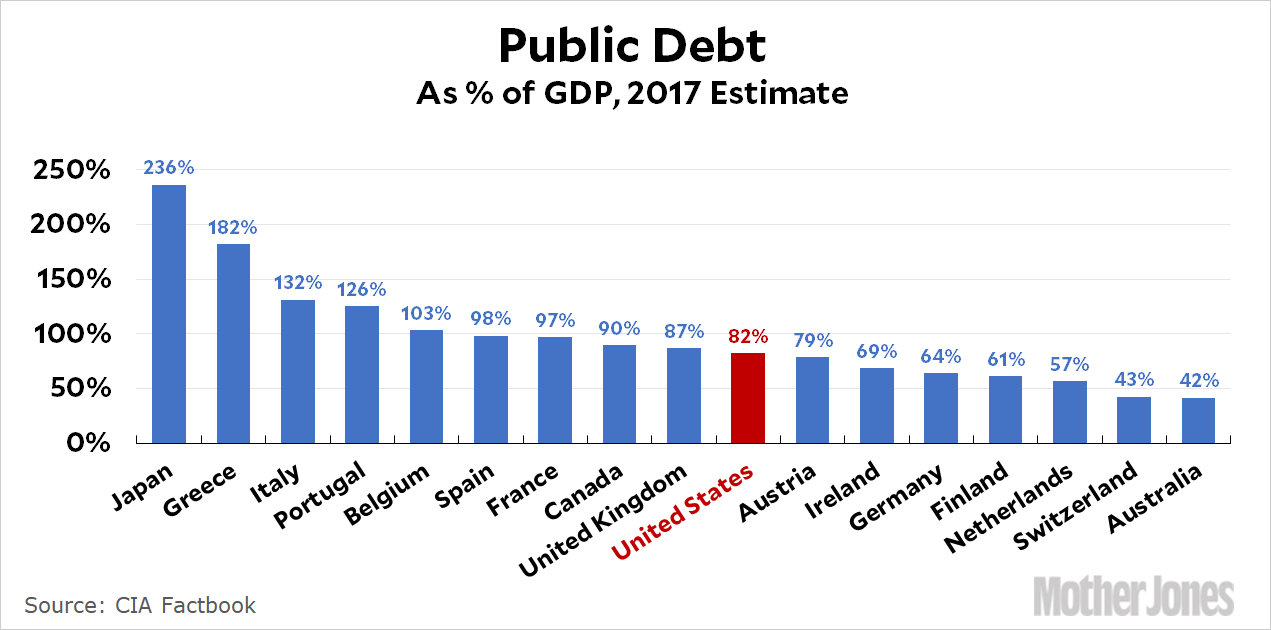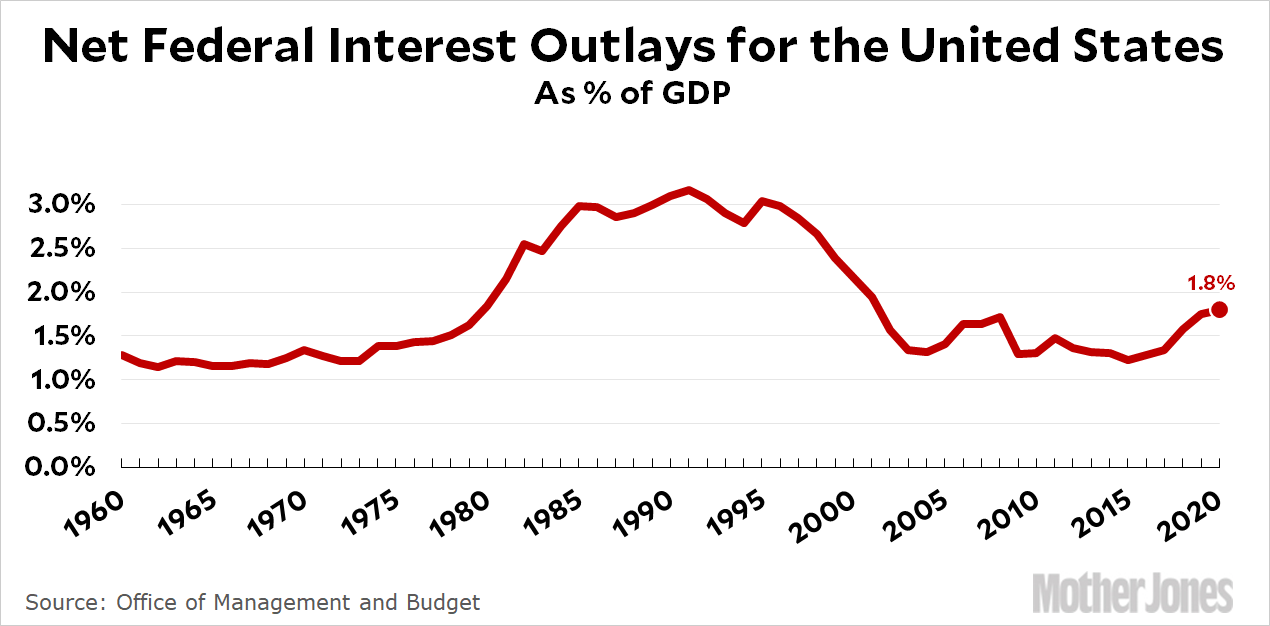Congressional negotiators are working feverishly to complete a coronavirus relief bill before Christmas, but they’re having a difficult time because Republicans are insisting that the total bill come in under a trillion dollars. Why? Because, they say, they’re concerned about the federal debt.
They shouldn’t be. First off, here’s a comparison of US federal debt to our peer countries before the pandemic:

And here are interest payments on the federal debt over the past 60 years:

Neither one of these suggests any need for panic. As long as investors are eager to buy our debt—and they very much are—we’ll do fine. What’s more, investors will continue to be eager to buy our debt as long as our economy is fundamentally sound. They care much more about this than they do about whether interest outlays increase by a tenth of a percent or so, and strong stimulus spending is what keeps the economy humming until we emerge from the pandemic.
For what it’s worth, I’d also like to repeat something I’ve said before: If you combine the CARES Act with the likely $900 billion from the upcoming relief bill, it comes to $3.1 trillion over the course of 18 months. That’s about $2.1 trillion per year, or 10 percent of GDP. This is more than three times higher than the Obama stimulus bill. Republicans may be misguided in their supposed concern about the debt, but macroeconomically we’re really not doing too badly this time around.










